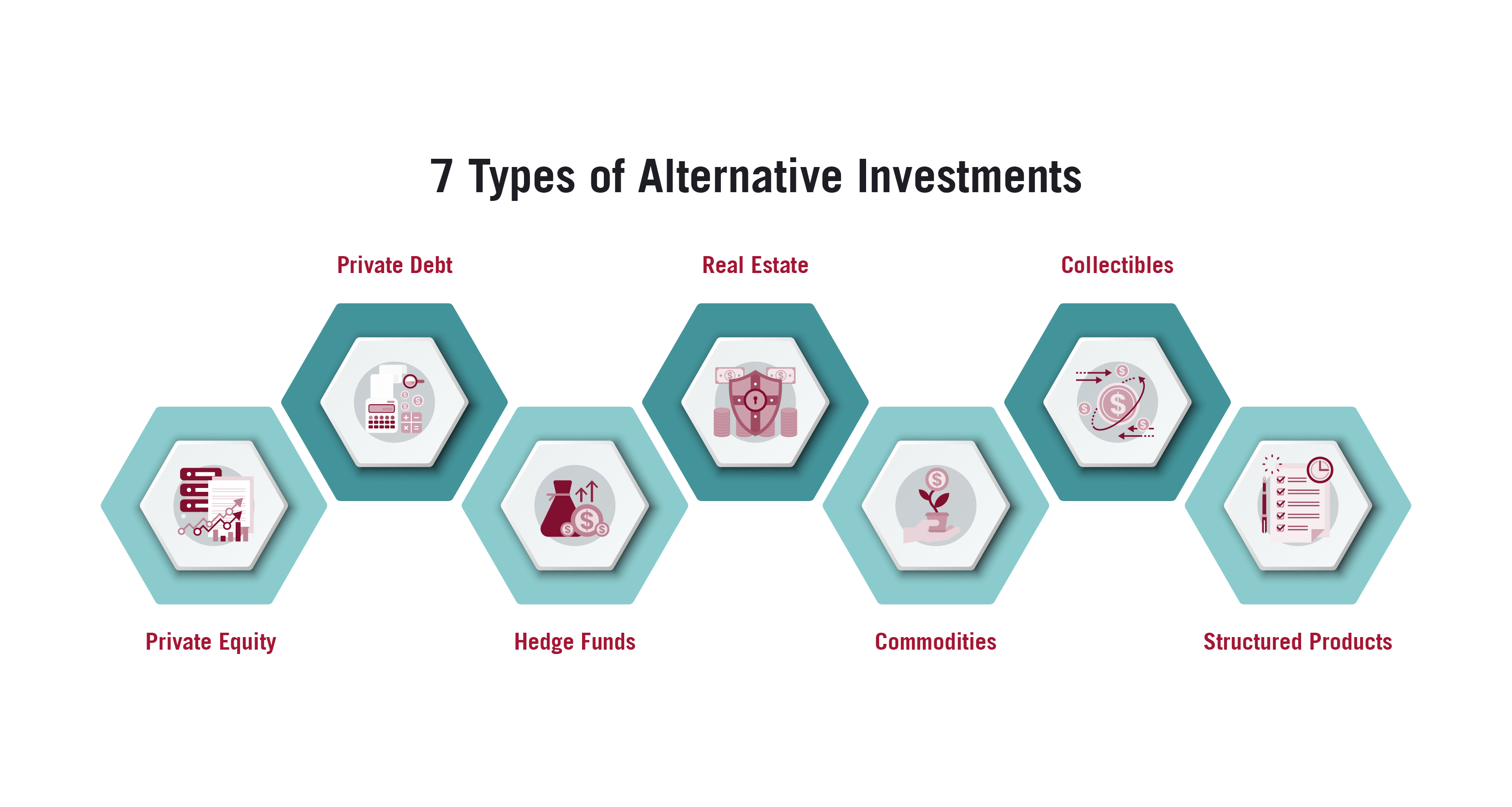
Portfolio Management(PMS) & AIF
It is always better to manage your Wealth with an expert & experienced Wealth Manager. 
Avail of AIF & PMS services
Are you looking to grow your money by investing in securities beyond mutual funds? Well, look no further than Alternative Investment Funds (AIFs) and Portfolio Management Services (PMS).
What Is Portfolio Management(PMS)?
Portfolio Management Services are provided by wealth management companies for high-net-worth individuals looking to take on additional risks and generate better returns than the market.
The SEBI-mandated minimum investment requirement for these services is 50 lakhs. Under PMS, a portfolio manager acts on behalf of the investor and invests capital in listed securities such as stocks, fixed-income securities, and other structured products with the aim of generating high returns.
These are personalized services where investors can track their portfolio, its performance, risk exposure, and so on.
It is a great way for HNIs to generate alpha returns on their capital, in the long run, using the expertise of professional money managers.
KEY TAKEAWAYS:
-
Investment portfolio management involves building and overseeing a selection of assets such as stocks, bonds, and cash that meet the long-term financial goals and risk tolerance of an investor.
-
Active portfolio management requires strategically buying and selling stocks and other assets in an effort to beat the performance of the broader market.
-
Passive portfolio management seeks to match the returns of the market by mimicking the makeup of an index or indexes.



What are Alternative Investment Funds (AIFs)?
Alternative Investment Funds (AIF) pool money from sophisticated private investors. Funds collected are invested according to the investment policy of the AIF. The Securities and Exchange Board of India’s mutual fund regulations doesn’t govern AIFs. However, AIF in India has its regulation, Regulation 2 (1) (b) of the Regulation Act, 2012 of SEBI. An AIF in India can be established as a company, Limited Liability Partnership (LLP), corporate body, or trust.
AIFs invest in investments that are not traditional (for example, equities or fixed income). The Securities and Exchange Board of India classifies AIFs under three broad categories. Namely, Category I AIF, Category I AIF, and Category III AIF. Each of the categories has different investments as per the broad definition of the category. Some of them are private equity, venture capital, hedge fund, angel fund, etc.
The minimum investments and fees for AIFs are higher than conventional investments. It is difficult to value an AIF as the asset classes that they invest in are pretty rare. AIFs are illiquid as these investments are open only to limited investors. The transaction costs for AIFs are lower than traditional investments as the turnover is lower. AIFs don’t share any information relating to the fund publicly. Also, AIFs have less opportunity to advertise to potential investors.
What are the Types of Alternative Investment Funds in India?
The Securities and Exchange Board of India (SEBI) categorizes Alternative Investment Funds into three broad categories. Investors can choose to register in any of the following three categories.
-
Category I AIF: AIFs within this category invest in economically and socially viable start-ups and Small and Medium Enterprises (SMEs) through Venture Capital Funds (VCFs), Angel Funds, Social Venture Funds, and Infrastructure Funds.
-
Category II AIF: AIFs that fall in this category invest primarily in viable equity and debt securities. This category includes private equity funds, funds for distressed assets, real estate funds, debt funds, and also funds of funds. These funds are close-ended and do not engage in leverage.
-
Category III AIF: This Category of AIFs focuses on earning short-term returns through diverse or complex trading strategies.CAT III includes hedge funds and private investment in public equity funds (PIPE).
Both AIFs and PMS are great investment options for HNIs to diversify their portfolios and earn higher long-term returns on their capital, albeit at higher risk. As a part of our offering, we provide access to various AIFs and PMS avenues. We believe a careful allocation in them by investors can expand the horizon and provide the right diversification and reduce volatility. We have tie-ups with various product developers suited to the investor's needs.
Which is better: While AIF gives the investor an avenue to pool in funds with the flexibility to invest in derivatives, listed & unlisted equity shares, real estate, hedge funds, etc.; PMS permits the investor to actively monitor its personalized portfolio to track developments and maximize returns.
Why choose us: Since both AIFs and PMS are high-risk, high-reward instruments, it is crucial to have an excellent management team. If you wish to invest in AIFs or PMS, get exceptional financial guidance and nurture your wealth by becoming a smart investor with us.
Taxation Rules for AIF in India
Before discussing the taxation rules on AIFs, it is imperative you know the factors impacting it. There are two of them:
- Your AIF taxation will depend on and vary with each category. Simply put, Categories I, II, and III are all taxed differently.
- The legal form of the AIF will also dictate the tax rules surrounding it. And, SEBI allows AIFs only in the form of a company, trust, or limited liability partnership.
Tax implications on AIF (category-wise)
Since the categories are different with different investment vehicles, the tax implications are also different for each of them. Let’s see the tax implication for each of them –
• CAT I & CAT II:
For CAT I & CAT II, there is a pass-through status. Tax pass-through status means that the income or loss (other than business income) generated by the fund will be taxed at the hand of the investor and not by the fund business. So, if you invest in these two categories of the AIF, then you need to pay capital gain tax on the profit or loss you make from the fund within a given duration. The duration here is important to understand whether long-term capital gain tax or short-term capital gain tax would be applied. As per the recent s rules for LTCG, 20% is the rate of tax with indexation benefit. If the profits are taxed as STCG, then the rate would be 15%. There are surcharges and cess charges on and above the mentioned tax rates as well. Any income (except business income) distributed by the investment fund is not liable for DDT and TDS of 10% has to be deducted by the investment fund.

CAT III:
This category of funds is taxable at the fund level. This has no pass-through status. The highest rate of tax (as per the current tax slab) is charged on the profit made by this fund.
A Category III AIF pays tax on the following four types of income:
-
Short-term capital gains
-
Long-term capital gains
-
Business income
-
Dividend income
Here is a table explaining how each source of income is taxed in Category III AIF in India:

| Tax type | Short-Term Capital Gains | Long-Term Capital Gains | Business Income | Dividend Income |
| Basic tax | 15% | 10% | 30% | 30% |
| Surcharge over tax | 15% | 15% | 37% | 37% |
| Education Cess | 4% | 4% | 4% | 4% |
| MMR | 17.94% | 11.96 | 42.74 | 42.74 |
Conclusion
AIF is a very sophisticated investment vehicle and the taxation rules make them a little more complicated for general investors. But the crux of it is that if you are investing in CAT III funds, then you do not have to worry about the taxation rules as these funds are taxable at the fund level. However, with the other two categories that are CAT I and CAT II, you need to understand the tax implications before investing.
If you are looking to invest in any category of Alternate Investment Fund, you will need professional help. Reach out to MUTUAL FUND Easy and allow us to curate financial solutions around AIFs that maximize your personal or business wealth.






